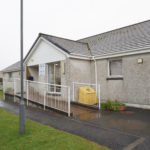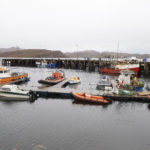Julie Lennon
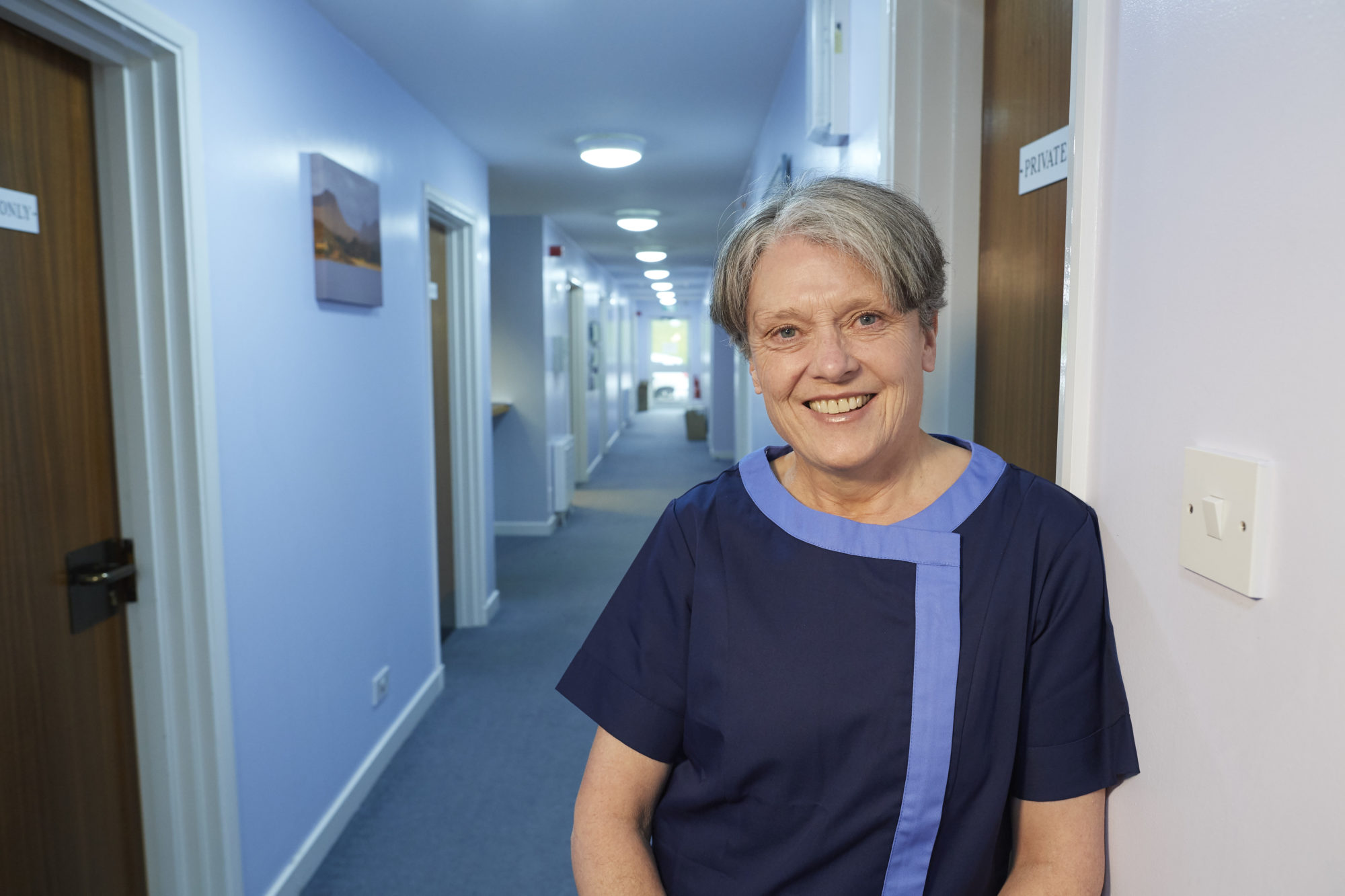
Julie Lennon works as an Advanced Nurse Practitioner (ANP) within the small village of Gairloch in the north west Highlands. A lifelong learner, she also works in nursing education and is known as an expert in her field of respiratory care.
I started my training in 1976 straight from leaving school. I think instinctively I had always wanted to be a nurse – I always thought I wanted to make a difference. I can remember my very first day working on a ward, I can even remember the name of my first patient and picture the bed he was sitting on.
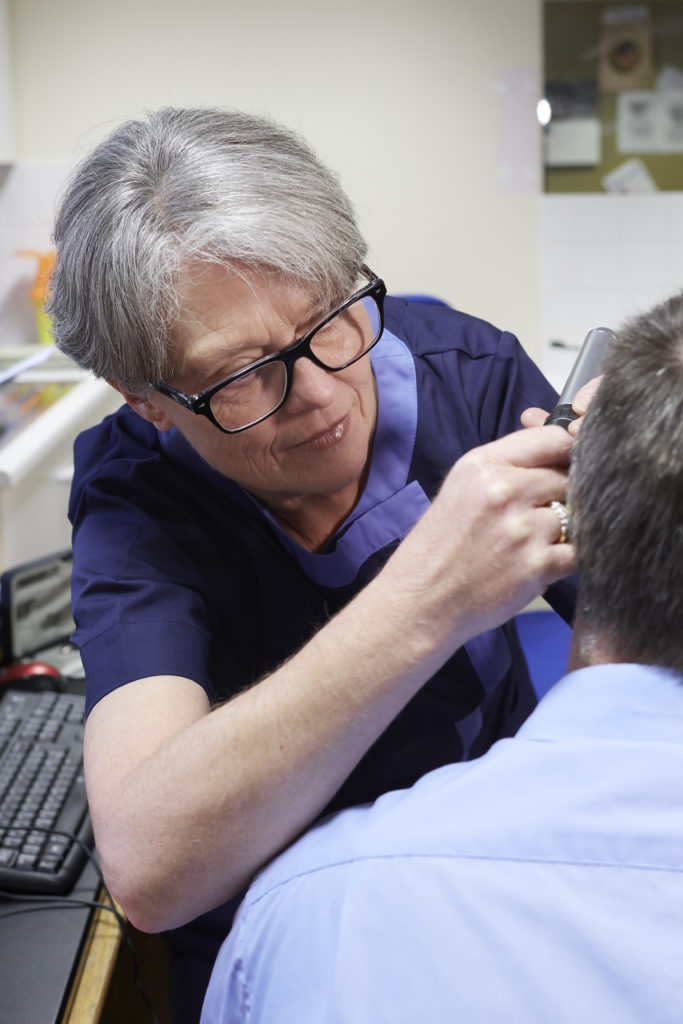
But, over time, I didn’t feel I fitted in at hospital. I didn’t know much about practice nursing but a friend of mine was a practice nurse and I asked if I could shadow her. Doing this I witnessed how you are not only working with a person, you are working with a family and that had a resonance with me. The patient could be of any age or gender, with myriad conditions or one, simple or complex. I committed to learning more about certain conditions, this was self-directed training and I also did a community nursing degree and a Master’s level Advanced Respiratory Care Post Grad Cert and Healthcare Leadership and Education Post Grad Dip.
I’ve been working in practice nursing for more than 30 years and have continuously studied and gained more qualifications and training throughout. In my nursing career, there’s never been a pathway that I have followed. I’ve had to be out there with a shovel to make my own path. I was always at the forefront and I really admire the opportunities nurses have today.
The Queen’s Nurse journey has been completely life-changing. Having been a lifelong student, passionate about education, the Queen’s Nurse award is the pinnacle of everything I have ever done. Nothing could match this – it is being recognised by others for your moral compass, the values you give to nursing, the standards you maintain and the advocacy work for nursing and quality.
My clinical role as an ANP for Aultbea and Gairloch Medical Practice involves seeing same-day patients and also following up patients – it can be anything within my competencies.
I also work for NHS Education for Scotland (NES) as an Education Advisor for the North Highlands – that’s really cascading information, supporting nurses with any queries they might have, and coordinating practice-based small group learning.
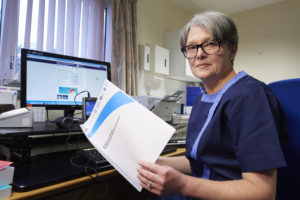 Additionally, I am an Education Supervisor for NES supporting a nurse on the General Practice Nursing (GPN) pathway. I do that via online meetings because of the rurality up here, but I do see her in person for direct clinical supervision. I am also a trainer for Education for Health – a charitable organisation based in England. I mainly deliver training that complements the NES training but at degree or masters-level modules. In my spare time I am a wife, a mum and a granny.
Additionally, I am an Education Supervisor for NES supporting a nurse on the General Practice Nursing (GPN) pathway. I do that via online meetings because of the rurality up here, but I do see her in person for direct clinical supervision. I am also a trainer for Education for Health – a charitable organisation based in England. I mainly deliver training that complements the NES training but at degree or masters-level modules. In my spare time I am a wife, a mum and a granny.
I love working with people – the communication, the idiosyncrasies people have, and that no two individuals are the same.
Not long into my nursing career, I really felt I had a longing to be part of a community who wanted to be an advocate for people who are vulnerable. To me, nursing isn’t only about helping – it is about empowering. It’s about giving people the skills, confidence and information to self-manage.
Although I have had various specialist and education jobs throughout a 30-year career, I keep being drawn back to practice nursing and I consider that to be because of a genuine passion for working with people with lots of different needs.
I love working with the community staff and being part of a team. The support I get from the reception staff at the practice is invaluable, their efficiency and unwavering willingness to help us all is massively appreciated. I love the support I get from the GPs and the relationship I have with the district nurses. We all have different skills and bring them together to deliver person-centred care for our rural community. I might be signposting patients to the school nurse, to community mental health, to the community midwife and I will know these professionals and like to think we can all learn from each other. There is no barrier there – it really is a community working for the community.
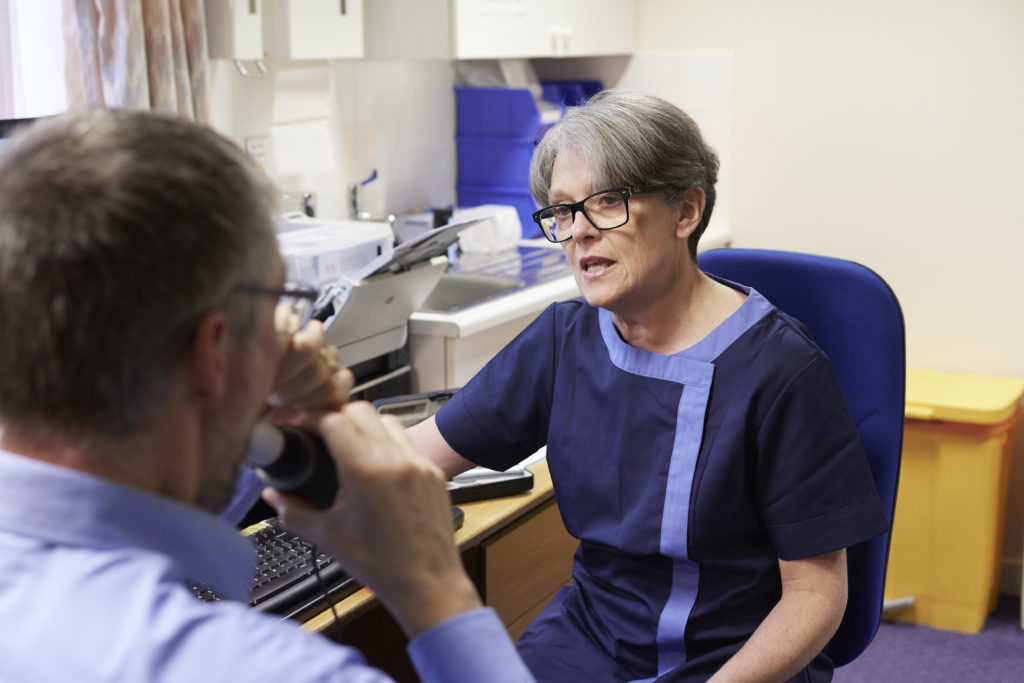 My Queen’s Nurse project is to develop an evidenced-based programme for delivering spirometry training for General Practice Nurses across Scotland. The simple spirometer test measures lung volumes and is used to support a diagnosis following a structured clinical history and to monitor certain lung conditions. This project will include both performing and interpreting spirometry. The quality of the training will meet and exceed the minimum requirements proposed by The Association for Respiratory Technology and Physiology standards.
My Queen’s Nurse project is to develop an evidenced-based programme for delivering spirometry training for General Practice Nurses across Scotland. The simple spirometer test measures lung volumes and is used to support a diagnosis following a structured clinical history and to monitor certain lung conditions. This project will include both performing and interpreting spirometry. The quality of the training will meet and exceed the minimum requirements proposed by The Association for Respiratory Technology and Physiology standards.
Many nurses work in isolation, within remote and rural communities. The delivery of health care must be at least equal to that provided in inner cities. Many patients currently have to wait in excess of six weeks for a referral to a physiology department. By providing this training, standards will be maintained, and patients will have the best opportunity for accurate diagnosis and management close to home.
The benefits are both for the patient, and the system at local, regional and national level, with the potential to improve the diagnosis of lung conditions. By providing the service in-house, patients will have a quality assured spirometry test and interpretation will meet national standards.
This will have a direct impact for the patient; receiving confirmation within the practice of their spirometry results. Accurate interpretation of spirometry results also ensures appropriate management and targeted therapy; so ensuring appropriate prescribing and management to support self-management for each individual.
